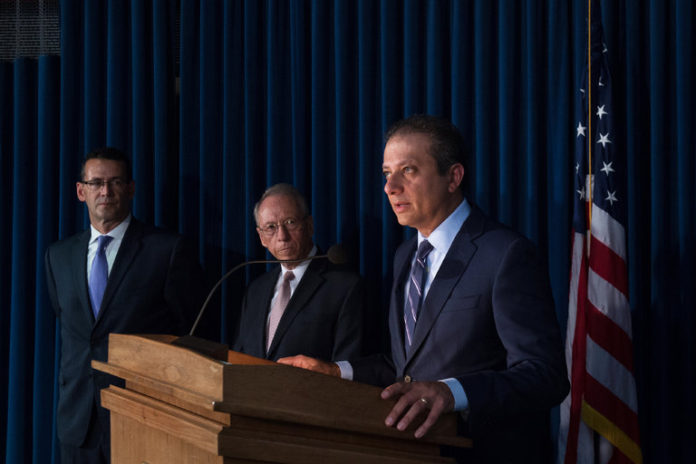Mr. Preet Bharara made news headlines this week after his name was amongst 46 US attorneys who were asked resign by the Trump administration. This, however, is not the surprising part of the story since it is commonplace for US Presidents to appoint new US attorneys once they begin their tenure. Mr. Bharara had been asked to stay on as Attorney for the South District of New York following President Trump’s 2016 victory. After the list had come on with his name, the attorney refused to resign from his post. However, Mr. Bharara has, since that time, lost his job. The attorney tweeted on Friday that he did not resign. He, instead, was fired. The tweet read, “I did not resign. Moments ago I was fired,” The incident begs the question, why was he fired?
Presidents often request attorneys appointed by the previous administration to resign. However, the choice to seek so many prosecutors to quit at the same time caused shock amongst members of the legal fraternity and among Americans in general.
The attorney rose to popularity after handling numerous corruption cases involving high-profile individuals and companies on Wall Street. Amongst his most popular cases was a $1.8 billion insider-trading case he won against hedge fund SAC Capital Advisors, who were later forced to close down. Current cases he is handling include sexual harassment amongst employees of Fox News and an investigation on a fund-raising conducted by Bill de Blasio, Mayor of New York.
New York Attorney General Eric Schneiderman said in a statement to the press, “President Trump’s abrupt and unexplained decision to summarily remove over 40 US attorneys has once again caused chaos in the federal government. Preet Bharara, like many of the US attorneys, dismissed this week, served with honor and distinction.”
Despite these and other statements from the legal fraternity concerning the demand for US attorneys to resign, the order is standard operating procedure. The replacement of US Attorneys within the Department of Justice has been done over time from President to President. As such, being a US attorney is, to an extent, employment that puts you under the President’s will regarding job security. This is because all US attorneys are appointed by the President with the advice and consent of the Senate. Further, only the President can remove a current US attorney from his post. The attorney general only oversees them and offers advice to both the President and the lawyers.
Additionally, the termination of a district prosecutor is very rare. Cases like these only happen when the impartiality of the prosecutor in question has significantly been affected. This could be shown, for example, if a sitting US Attorney leaks information concerning an undercover investigation to the case’s primary suspect as happened during President Reagan’s tenure.
Due to the rarity of such situations, could it be that Mr. Bharara simply forced the firing to make the Trump administration seem like the tyrants? After all, he already has a fulfilling career and, due to his experience, bright prospects in the legal framework. Still, the administration had already asked him to resign. As common as it is for changing governments to make such requests, why did he not simply go on quietly and leave?
Requests for additional comments to the incident from the Department of Justice and Mr. Bharara’s office have been denied.




